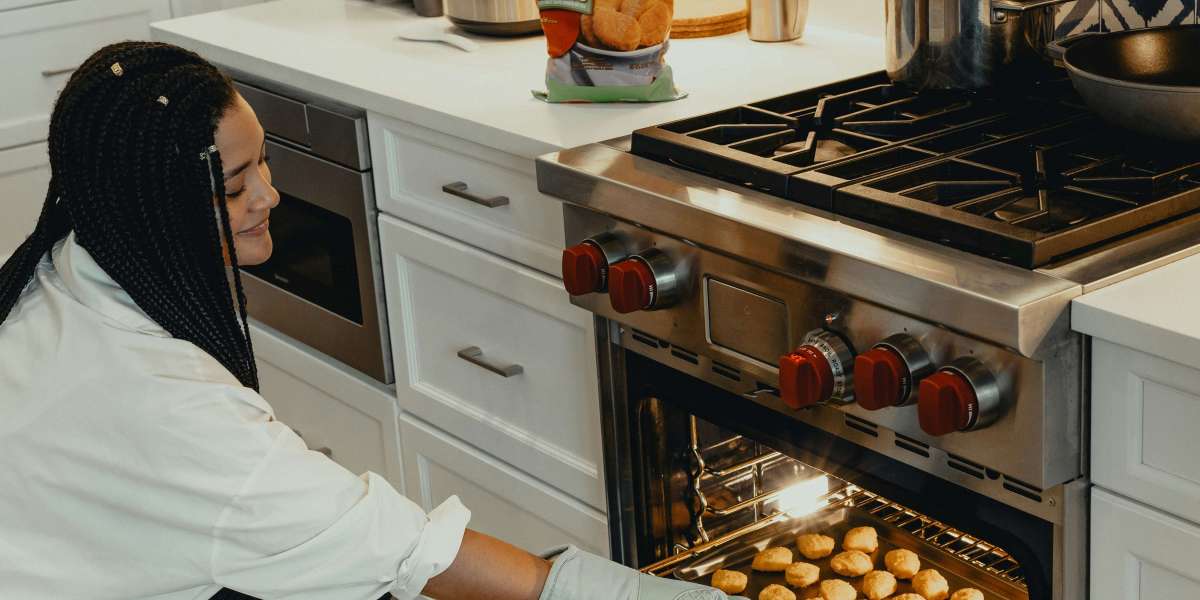Home appliances are a significant investment, and taking proper care of them can save you money in the long run by avoiding costly repairs and replacements. Whether you’re using top kitchen appliances like refrigerators, ovens, and dishwashers, or laundry machines and air conditioners, regular maintenance is essential to ensure they work efficiently for years. Proper maintenance doesn’t require a lot of time or money, but it can dramatically extend the lifespan of your home appliances, improving their performance and longevity.
In this guide, we will explore practical tips to maintain your appliances and keep them running smoothly for years to come.
1. Regular Cleaning Is Key
The first and most basic step in maintaining your home appliances is regular cleaning. Dirt, dust, and grime can accumulate over time, leading to inefficient performance and potential breakdowns.
Refrigerator: Cleaning your refrigerator’s coils is crucial. Dust buildup on the condenser coils forces the fridge to work harder, which can reduce its efficiency. You can use a vacuum or a brush to clean the coils at least twice a year.
Oven: Make sure to wipe spills as soon as they happen in your oven. Burnt food particles can affect heating efficiency and even cause smoke during the next use. Many modern ovens come with a self-cleaning feature, but manually cleaning with a mix of baking soda and water can also do the trick.
Dishwasher: Cleaning your dishwasher’s filter and door seals can prevent food buildup, which may cause unpleasant odors or clog the system. A monthly cleaning using vinegar or a dedicated dishwasher cleaner is recommended.
2. Check Seals and Gaskets
Seals and gaskets are vital components of your home appliances. They keep cool air inside refrigerators and prevent water from leaking out of dishwashers and washing machines. Over time, these seals can wear out, leading to energy loss and inefficient performance.
Refrigerator Gaskets: Ensure that the refrigerator door seals tightly to keep cold air inside. If you notice gaps or tears, it’s time to replace the gaskets. A simple test is to place a piece of paper between the door and the fridge. If the paper slides out easily, the seal is not tight enough.
Dishwasher and Washing Machine Seals: Check the seals around the doors regularly for signs of wear. If you notice any cracks or damage, replace them immediately to avoid leaks and improve efficiency.
3. Avoid Overloading Your Appliances
One of the most common mistakes people make is overloading their appliances. Whether it’s a washing machine, dishwasher, or oven, overloading can cause strain on the appliance, reducing its efficiency and shortening its lifespan.
Washing Machine: Avoid stuffing your washing machine to its full capacity. Overloading can damage the motor and bearings. It’s always better to do smaller loads for better cleaning results and longer machine life.
Dishwasher: Similarly, overloading the dishwasher can prevent proper cleaning and lead to clogged spray arms. Follow the manufacturer’s guidelines for the correct load size to get the best performance.
Oven: Overloading your oven can restrict airflow, resulting in uneven cooking and poor performance. Make sure there’s enough space around food for heat to circulate properly.
4. Follow Manufacturer’s Maintenance Guidelines
Each appliance comes with a user manual that provides specific maintenance guidelines. It’s crucial to follow these recommendations to ensure optimal performance and a longer lifespan for your appliances.
Refrigerator: The manufacturer may suggest specific cleaning routines, including changing water filters and defrosting the freezer if necessary. Pay attention to these instructions to keep your refrigerator running smoothly.
Top Kitchen Appliances: For top kitchen appliances like ovens, dishwashers, and microwaves, following the maintenance schedule recommended by the manufacturer will prevent wear and tear from escalating into major issues.
5. Inspect and Replace Worn-Out Parts
Over time, some parts of your appliances may wear out or break. Regularly inspect components like filters, belts, and hoses to ensure they are in good working condition.
Washing Machine Hoses: The hoses in your washing machine should be inspected at least once a year for signs of wear. A cracked or brittle hose can burst, causing flooding and expensive water damage. Replace them every five years, even if they appear to be in good condition.
Dryer Lint Trap and Vent: Clean the lint trap after every use to prevent clogs and potential fire hazards. Additionally, inspect the vent pipe for any lint buildup that could reduce airflow and cause the dryer to overheat.
6. Keep Appliances Level
Ensuring that your appliances are level is a small but important maintenance step. Appliances like washing machines, dryers, and refrigerators need to sit on a level surface to operate effectively.
Washing Machine: If your washing machine is unbalanced, it can lead to excessive vibrations and noise, which may damage the internal components. Most washing machines come with adjustable feet that can be leveled to stabilize the machine.
Refrigerator: A refrigerator that is not level may not close properly, causing energy loss and overworking the motor. Use a level to check that your refrigerator sits evenly on the floor.
7. Unplug Appliances When Not in Use
Many appliances, especially those in the kitchen, consume power even when they are not in use. This phenomenon, known as “phantom load,” can increase your energy bills and place unnecessary wear on the appliances. Unplug small appliances like coffee makers, toasters, and microwaves when they’re not in use to save energy and extend their lifespan.
Top Kitchen Appliances: Some of the top kitchen appliances like smart ovens and refrigerators may have energy-saving modes, which can be activated when not in use. Take advantage of these settings to reduce unnecessary energy consumption.
8. Schedule Professional Maintenance
While regular cleaning and inspections can go a long way, it’s also beneficial to schedule professional maintenance for some of your larger appliances. Professionals can identify potential problems early and offer solutions to prevent costly breakdowns.
Air Conditioning Units: Professional technicians can clean the coils, check refrigerant levels, and ensure the system is running efficiently. Annual maintenance can help your air conditioner last longer and perform better.
Refrigerators: A professional can assess whether your refrigerator’s compressor and cooling system are functioning correctly, preventing expensive repairs down the line.
Final Thoughts
Maintaining your home appliances is an investment in their longevity and performance. By following these simple steps—cleaning regularly, inspecting parts, and avoiding overloading—you can extend the lifespan of your appliances and ensure they run efficiently for years to come. Staying on top of basic maintenance tasks will not only save you money in the long run but also provide peace of mind, knowing that your appliances are functioning at their best.
Taking good care of your top kitchen appliances and other home essentials is key to keeping your household running smoothly and your budget in check.








